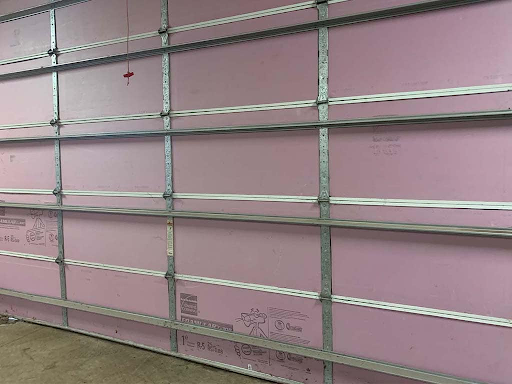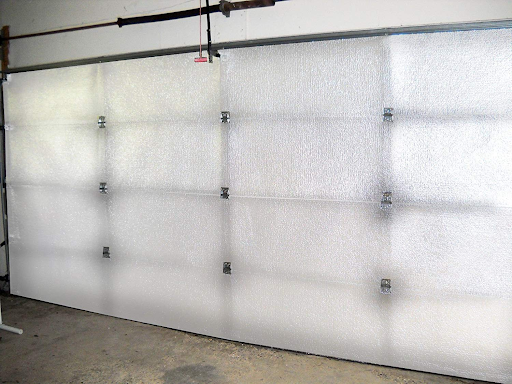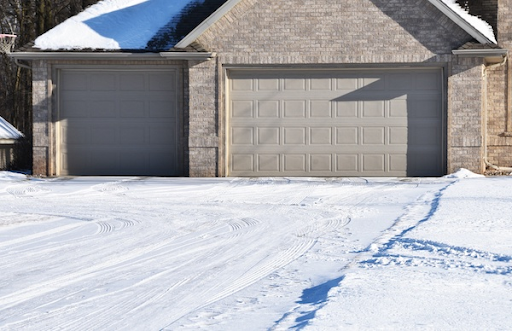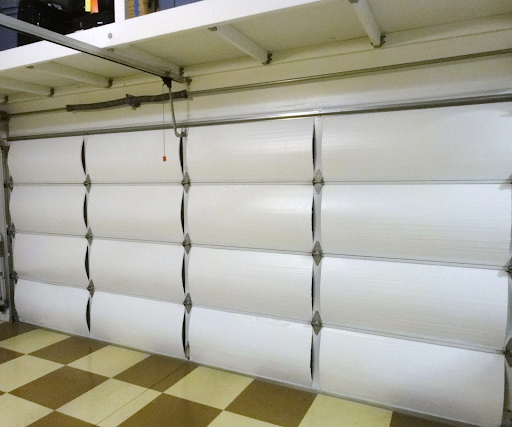Understanding Garage Door Insulation: What R-Value Do You Need?
When it comes to your garage door, insulation might not be the first thing on your mind. However, understanding it can significantly impact your home’s energy efficiency and comfort. Have you ever noticed how chilly the space gets in winter or sweltering in summer? The right insulation can make all the difference.
One key factor to consider is R-value, a term you might have heard but never fully understood. This measurement indicates how well a material resists heat flow, and higher numbers mean better insulation. With so many options available, making the right choice might be hard. Here’s a guide to help you.
What Is R-Value?
R-value is an important measurement in the garage door insulation considerations. It quantifies how well an insulating material resists heat transfer. The higher the R-value, the better that material can keep your garage warm in winter and cool in summer.

This metric is particularly relevant when selecting materials for your garage door. A good understanding of R-value helps you gauge how energy-efficient your space will be. Different types of insulation materials have varying R-values, which can also affect energy bills over time. Knowing the right R-value for your garage door ensures you make the right decision about insulation that suits Massachusetts state climate.
Different Types of Insulation Materials
Several materials can help you achieve energy efficiency. Each type has its own unique properties and benefits. We’ll list them first, before we go into deeper explanations:
- Polystyrene insulation
- Polyurethane insulation
- Fiberglass insulation
Each material has distinct advantages depending on your specific needs and budget considerations. This is why you need to know them, so that you can make the right choice.
Polystyrene Insulation
Polystyrene insulation is a popular choice for garage doors. It comes in two main forms: expanded and extruded. Each type has its benefits, making it versatile for various applications.
Expanded polystyrene (EPS) is lightweight and offers good thermal performance. It’s also cost-effective, which makes it appealing for homeowners with a lower budget. The material can easily fit into the door panels during installation.
Extruded polystyrene (XPS) provides superior moisture resistance and a higher R-value compared to EPS. This means better energy efficiency, especially in extreme weather conditions.
Both types are durable and resist degradation over time. In addition to their insulating properties, polystyrene materials are often recyclable, which can positively contribute to environmental sustainability efforts.
Polyurethane Insulation
Another popular choice with maximum thermal efficiency is polyurethane insulation. It’s known for its high R-value per inch, which makes it an excellent option for garage doors. This type of insulation comes in two forms: spray foam and rigid boards. Spray foam expands to fill gaps and create a tight seal, while rigid boards offer sturdy protection against the elements.

One significant advantage is its superior air barrier properties. This means less heat loss during winter and reduced cooling costs in summer. Polyurethane also resists moisture better than many alternatives. This characteristic helps prevent mold growth, ensuring your garage remains healthy over time. While it may have a higher initial cost than other materials, the long-term savings on energy bills can be substantial. If you’re looking for durability combined with performance, polyurethane should definitely be on your radar.
Fiberglass Insulation
Fiberglass insulation is a popular choice for garage doors due to its effectiveness and affordability. This material consists of tiny glass fibers, which create air pockets that hinder heat transfer.
One of the biggest advantages of fiberglass is its lightweight nature, making it easy to handle during installation. It can fit snugly into various types of garage door designs, enhancing thermal performance without adding unnecessary weight. Another benefit lies in its moisture resistance. Fiberglass doesn’t absorb water like some other materials, helping prevent mold growth and maintaining durability over time.
However, proper installation is very important here. Any gaps or misalignments can significantly reduce its efficiency. When done right, fiberglass insulation is a cost-effective energy-saving solution.
Main Benefits of High R-Value
A high R-value in garage door insulation offers significant advantages. It primarily improves energy efficiency, reducing heating and cooling costs throughout the year. This means a more comfortable environment inside your garage, regardless of the season.
Another benefit is soundproofing. Thicker insulation helps minimize outside noise, giving you more peace for activities or storage spaces adjacent to your home. Additionally, garages often serve as entry points into homes. High R-value insulation can improve security by maintaining consistent temperatures and protecting stored items from extreme weather conditions.

Moreover, investing in better insulation increases property value. Potential buyers appreciate energy-efficient features that lead to long-term savings on utility bills. Improved thermal performance means an extended lifespan for systems like HVAC units. Less work for these systems results in fewer repairs and replacements over time.
Recommended R-Value for Garage Door
When it comes to selecting the right R-value for your garage door, several factors come into play. The climate in your area is a primary consideration. If you live in regions with extreme hot or cold temperatures like Fitchburg, Ma, you’ll want a higher R-value to maintain comfort and energy efficiency.

An R-value between 10 and 15 is often sufficient for homeowners in temperate climates. However, homeowners in colder areas may benefit from options that offer an R-value of 16 or more. Another aspect to consider is how you use your garage space. Moderate insulation might suffice if it’s simply a place for parking cars or storing tools. But if you’re using your garage as a workshop or think about converting it into living space, then you’ll definitely want something better.
If you’re still pondering the right choice, our garage door experts are at your service. Contact us today to book a free consultation and let’s see how we can help you with the right insulation.

